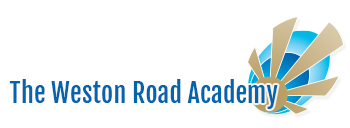Related Pages
- Curriculum Structure & Subjects
- Art
- Computing & Digital Literacy and Business Studies
- English
- SHARE (SOCIAL HEALTH AND RELATIONSHIP EDUCATION)
- Modern Foreign Languages
- Geography
- History
- Mathematics
- Performing Arts
- Physical Education
- Psychology (A level only)
- Science
- Design & Technology
- Learning Support SEN
- Super Curriculum
- Learning Journeys
Computing & Digital Literacy and business studies
Aim
Welcome to the Business, Computing and Digital literacy Department. We strive to create a productive, engaging, and varied curriculum to educate and inspire our students in aspects of Business, Information Technologies, Computer Science and Digital Literacy.
Our aim is to inspire and educate the next generation Business and Digital Professionals and to equip all of our students with valuable knowledge, skills and understanding. Students enjoy studying these current and ever-changing subject areas, and our options are a popular choice.
BCDL Curriculum
Core CDLAll pupils in Key Stages 3 have one 50 minute period of CDL per week. Students learn a wide range of skills including learning about programming concepts, computer systems, networks, and hardware and software. Digital literacy focuses on equipping students with a wide range of software user skills such as e-mail, presentation skills and website creation, and gives students an understanding of copyright, digital property and online safety.
Assessment: In Digital Literacy and Computing students are regularly assessed using online tests and on-screen assessments, students also have unit assessment sheets to self-assess their own progress as they complete a unit. Teacher feedback is regularly given verbally to form digital work, and homework is marked in detail using the SAIL method. Students are set one extended homework pieces per academic year linked to work studied in lesson time, however there are opportunities for wider learning around the subject for students who actively want to complete more extra work in the subject.
Key Stage 3 Overview
KS3
All pupils in Key Stages 3 have one 50 minute period of CDL per week. We aim to give students software skills needed to excel in other subjects, as well as developing a core understanding of IT, Computer Science and providing students with a basic introduction to some Business concepts pre-option choices. Learning is project based, and students develop the following skills and understanding:
- Induction to our systems
- Online safety, viruses, malware and password security movie making
- Developing programming skills through Scratch gaming
- Business spreadsheet modelling and branding
- Networks, hardware & software website creation
- BBC Microbit computing activities
Assessment: In Digital Literacy and Computing students are assessed using on-screen assessments, students also have unit assessment sheets to self-assess their own progress as they complete a unit. Teacher feedback is regularly given verbally to form digital work, and an end of project SAIL task is given to give students an opportunity to improve their work.
Homework: Students are set two extended homework pieces per academic year linked to learning, however there are opportunities for wider learning around the subject for students who actively want to complete more extra work in the subject upon request.
Optional Subjects at KS4
GCSE Business
GCSE Business is an academic qualification that aims to give young people a valuable and relevant insight into the world of business. The course is both active in terms of discussions, class participation and theoretical study. In each lesson real business examples are studied and analysed to show how companies operate, market themselves and make profits.
In Theme One you are introduced to entrepreneurship, spotting a business opportunity, implementing a business idea, effective business management and external influences on business. In Theme Two you will learn about business growth, marketing, business finance, operations and human resources.
Each Theme will be examined at the end of the course in a separate paper.
Assessment - GCSE Business
EXAM BOARD: Pearson (EDEXCEL)
EXAM LEVEL: Full Course GCSE
EXTERNAL ASSESSMENT: Two examined papers 100% externally assessed
Cambridge National Certificate in Enterprise and Marketing
R064: Enterprise and marketing concepts (examined unit in June of year 10)
Learners will develop essential knowledge and understanding of enterprise and marketing concepts, which can be applied to the other units within the qualification. Through the first topic learners will understand the main activities that will need to happen to support a start-up business, and what the key factors are to consider when starting up a business.
R065: Design a business proposal (internally assessed coursework unit)
Learners will develop the skills to design a business proposal to meet a specific business challenge. They will identify a customer profile for a specific product, complete market research to generate product design ideas, and use financial calculations to propose a pricing strategy and determine the viability of their product proposal.
R066: Market and pitch a business proposal (internally assessed coursework unit)
Learners will develop the skills to create a brand identity and promotional plan for their specific business product proposal developed in the second topic. They will develop pitching skills in order to pitch their business proposal to an external audience. Finally, they will review their pitching skills and business proposal using their learning, self-assessment and feedback gathered.
Assessment - Cambridge National Certificate in Enterprise & Marketing
EXAM BOARD: OCR
EXAM LEVEL: Level 2 National Certificate (1GCSE equivalent)
EXTERNAL ASSESSMENT: Examined paper- 50%, 2 coursework units-25% each
GCSE Computer Science
GCSE in Computer Science equips learners with a knowledge and understanding of the fundamental principles and concepts of the subject, including the computational thinking skills to analyse problems and design solutions across a range of contexts.
The aims and objectives of the GCSE in Computer Science is to enable learners to;
- understand and apply the fundamental principles and concepts of computer science
- including abstraction, decomposition, logic, algorithms, and data representation
- analyse problems in computational terms through practical experience of solving such problems, including designing, writing and debugging programs
- think creatively, innovatively, analytically, logically and critically
- understand the components that make up digital systems, and how they communicate with one another and with other systems
- understand the impacts of digital technology to the individual and to wider society
- apply mathematical skills relevant to computer science
| Unit 1: Principles of Computer Science | 50% external examination |
| Unit 2: Application of Computational Thinking | 50% external examination |
| Unit 3: Project | Internal controlled assessment |
This course is intended for pupils who have a keen interest in programming and Computer Science and may wish to study Computing as an A-level option, or considering a career in digital industries. This course would also suit learners with a keen interest in programming who wish to develop their skills further.
Assessment - Computer Science
EXAM BOARD: Edexcel
EXAM LEVEL: Level 2
INTERNAL ASSESSMENT: 0%
EXTERNAL ASSESSMENT: 100%
Cambridge National Certificate in Information Technologies
This is a new and rigorous vocational qualification devised to be relevant, up to date, and to equip learners with key IT skills and knowledge.
Pupils will develop a broad range of IT and Digital Literacy skills, and develop knowledge of IT systems, hardware, software, networks, securing IT systems, data and information and emerging technologies (smart technologies).
R012 Understanding tools, techniques, methods and processes for technological solutions
Learners will sit an exam to assess their knowledge and understanding of different technologies (hardware and software applications), and tools and techniques used to select, store, manipulate and present data and information.
They will also be assessed on what the phases of the project life cycle are, the interaction between the phases and the inputs and outputs within each phase. They will need to understand the different risks associated with the collection, storage and use of data and how the legal, moral, ethical and security issues can have an impact on organisations and individuals. They also need to understand how such risks can be mitigated. Other topics include; Data security, Legislation, Cybersecurity, and new and emerging technologies.
R013 Developing technological solutions
They will be given a project to develop a technological solution that processes data and communicates information.
They will follow the project life cycle phases of initiation/planning, execution, communication and evaluation, demonstrating the practical skills they have acquired such as carrying out a SWOT analysis, creating GANTT charts, developing online surveys, and/or presenting data through web-based technologies; keeping their project on track through on-going, iterative reviews. They will use different hardware and software technologies to create an integrated technological solution for data processing and communication of information, such as presentation software, spreadsheets, databases, email and web authoring software.
This course is intended for pupils who have a keen interest in IT and may wish to study IT as a level 3 option, or to develop a broad range of IT skills for a career in the IT/technology sector. This course is also suitable for pupils considering other careers who may wish to develop key Digital Literacy Skills for in other careers.
Assessment - Cambridge National Certificate in Information Technologies
EXAM BOARD: OCR
EXAM LEVEL: Level 2
INTERNAL ASSESSMENT: 60% Internal assessment (R012)
EXTERNAL ASSESSMENT: 40 % External examination (R013)
Optional Subjects at KS5
A-Level Business
|
Course Description The Pearson Edexcel Level 3 Advanced GCE in Business is structured into four themes and consists of three externally examined papers. Students are introduced to business in Themes 1 and 2 through building knowledge of core business concepts and applying them to business contexts to develop a broad understanding of how businesses work. Breadth and depth of knowledge and understanding, with applications to a wider range of contexts and more complex business information, are developed in Themes 3 and 4, requiring students to take a more strategic view of business opportunities and issues. Students are encouraged to use an enquiring, critical and thoughtful approach to the study of business, to understand that business behaviour can be studied from a range of perspectives and to challenge assumptions. There may be an option for studying the AS course in one year, however, all students enrolled on the A-Level course will study Themes 1&2 in Year 1. For the A-Level course there will be three external assessments that students will sit at the end of the two year course
|
|
Course Content Theme 1: Marketing and PeopleStudents will develop and understanding of: meeting customer needs the market marketing mix and strategy managing people entrepeneurs and leaders Theme 2: Managing business activitiesStudents will develop an understanding of:raising finance financial planning managing finance resource management external influences Theme 3: Business decisions and strategyThis theme develops the concepts introduced in Theme 2.; Students will develop an understanding of:business objectives and strategy business growth decision-making techniques influences on business decisions assessing competitiveness managing change Theme 4: Global businessThis theme develops the concepts introoduced in Theme 1.; Students will develop an understanding of:globalisation global markets and business expansion global marketing global industries and ocmpanies (multinational corporations) ;
|
|
Entry Requirements A*-C in at least five different subjects, including English and mathematics which would usually be at grade 5 or above (equivalent to grade C in previous years).To study other subjects already taken at GCSE you must achieve at least a grade 5 or C grade or above in that subject.
|
|
Assessment A-Level: Paper 1: Marks Available 30% Marketing, people and global Business (9BSO/01)- this paper will be based on themes 1 and 2 of the syllabus. Duration: 2hours Paper 2:Marks Available: 35%: Business Activities, decisions and strategy (9BSO/02)- this paper will be based on themes 2&3 of the syllabus. Duration: 2hours Paper 3: Marks Available: 35%;: Investigating business in a competitive environment (9BSO/03) – this paper will be based on Themes 1-4 of the syllabus.; There will be pre-seen case study material provided for use with this paper. All three A-Level external examinations will be sat at the end of the two year A-Level course.
|
KS4 Homework:
Homework is set weekly in year 10 and 11, and will usually form part of the revision clock strategy. Homework tasks will be set on Show My Homework, and will be checked by teachers for quality. In year 9 teachers will either set termly project based extended homework, or weekly tasks in response to their learning needs.
BCDL Facilities
The CDL department has excellent facilities; there are six CDL teaching suites, a smaller hub suite bookable laptops and i-pads. All CDL teaching rooms have an interactive whiteboard, apple TV and every student accesses their own computer.
We have a wide range of software for students to access. Every student has Office 365 login that enables them to use Microsoft OneDrive at school and at home; this gives students online access to school email, online office programs and their own cloud storage area to save work and collaborate effectively.
We also have a set of Rasberry Pi computers for students who study Computer Science, and teaching sets of the BBC Microbit for hands-on coding.
Extra-curricular activities
Code Club is in G7 every Tuesday lunchtime with Mrs Deeming, which gives students who are interested in coding a chance to access some extra tuition and have fun with code.
Revision sessions are available for students in the lead up to examinations, and are advertised via Show My Homework.
Business students in year 9 can compete in the £5 challenge as part of our Winter Fair, starting their own stall with only £5 capital, with the aim of making as much money as they possibly can.
We aim to organise regular visits, and have been to Bletchley Park, London Business District and Birmingham. More visits are planned and information will be available to students as soon as they are confirmed.
Useful Links
Business
IT/CS
Revision Tools
Staff List
The teaching staff are currently:
Mrs Z Breeze Subject Leader in CDL and Business - zbreeze@westonroad.staffs.sch.uk
Mrs M Deeming Teacher of CDL/Computer Science/Information technologies - mdeeming@westonroad.staffs.sch.uk
Mr A Potts Teacher of Enterprise and Marketing/Ethics - apotts@westonroad.staffs.sch.uk
Mrs S Dubiel Teacher of Business - sdubiel@westonroad.staffs.sch.uk






